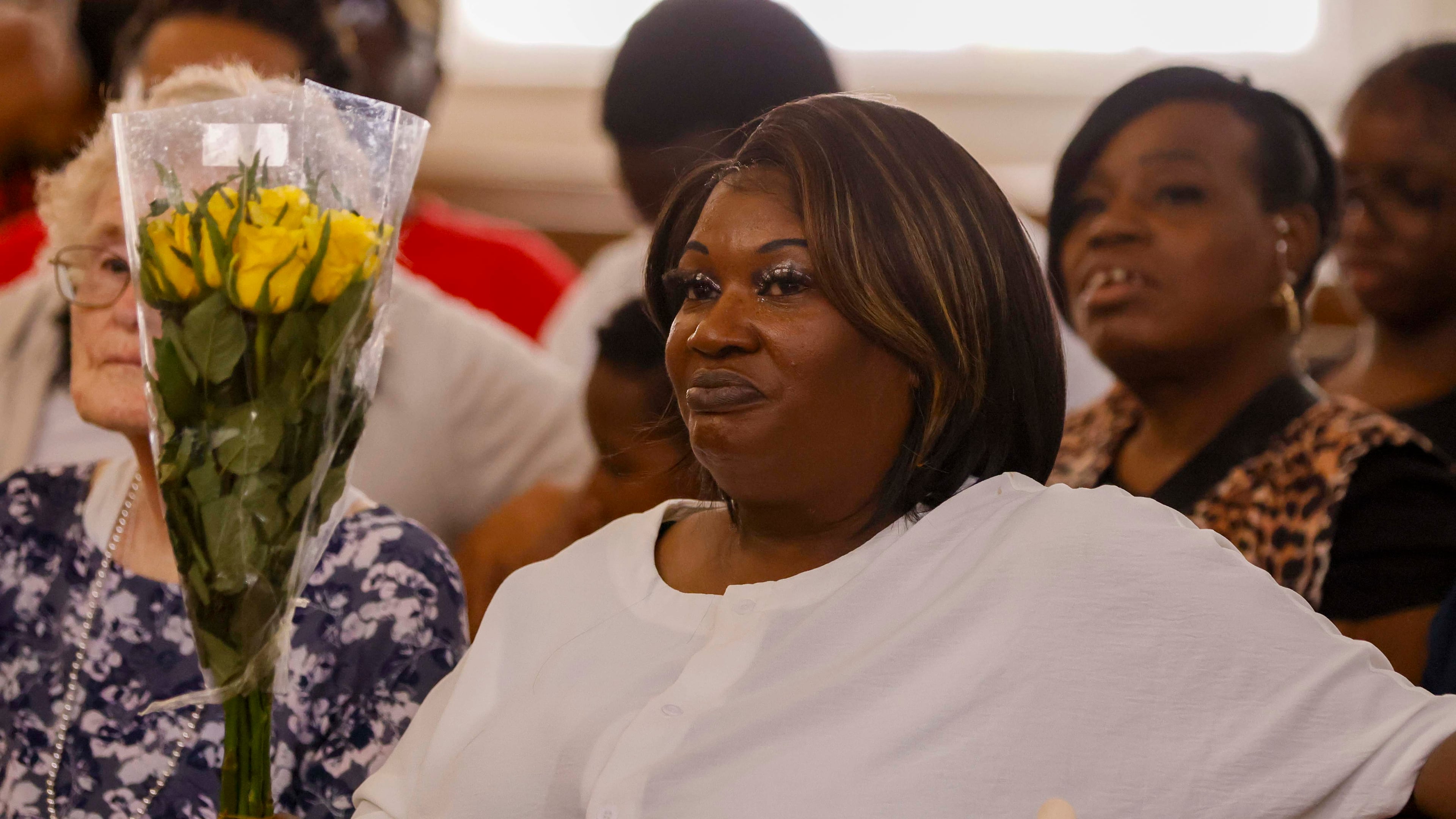Family of Adriana Smith marks what would have been her 31st birthday

Adriana Smith would have turned 31 this month.
Her family gathered with abortion-rights groups on Sunday to celebrate the life of the metro-Atlanta woman who was declared brain-dead in February, as well as call for changes to the state’s restrictive abortion law.
Smith’s family said the registered nurse and mother of one has been on life support since then to allow her body to continue to grow her fetus. Smith was nine weeks pregnant when she was admitted to the hospital.
Smith had gone to a different hospital the day before with complaints of a severe headache but was sent home with medication.
The next morning, her boyfriend found her gasping for air and making gargling sounds in her sleep, according to 11Alive, which first reported the news.
Her family held a private service earlier Sunday before allowing press into the Park Avenue Baptist Church. They declined to be interviewed.

Dr. Zoe Lucier-Julian, an OB-GYN who is not involved with Smith’s care, said she was sad but not surprised to learn of Smith’s medical state.
“We find ourselves in a time where medical racism runs rampant,” Lucier-Julian said. “Adriana, who was (a medical provider) herself, was failed by a system that she works to help, the one that she trusted.”
The mother of a 7-year-old boy, Smith made international headlines last month when her mother, April Newkirk, said her daughter was declared brain-dead in February but being kept on life support by the hospital because she is pregnant and the state’s abortion law forbade them from terminating the pregnancy.
Newkirk later clarified the family intends to keep Smith on life support until the baby is born.
The fetus is now about 26 weeks into gestation. Newkirk has said they are waiting until August for Smith’s pregnancy to be induced and the baby, whom the family has named Chance, to be delivered by cesarian section.
Georgia law bans most abortions after medical professionals can detect fetal cardiac activity, which is typically around six weeks of pregnancy and before many know they are pregnant. Later abortions are allowed in limited cases, such as if there is a fetal abnormality or if the life of the mother is at risk.
There also are exceptions in instances of rape or incest when a police report has been filed.
For years, abortion rights advocates and providers have said Georgia’s law is unclear because much of the language used is not in medical terms.
For example, the law says abortions may occur if the mother is experiencing a “medical emergency,” but doctors say that’s difficult to interpret because there is no bright line between a person being fine and at risk of death.
“We know that Georgia is under attack in many ways,” said Monica Simpson, executive director of SisterSong Women of Color Reproductive Justice Collective. “We know we are in a maternal health crisis; we know that we are in a health care crisis in general in this state.”



